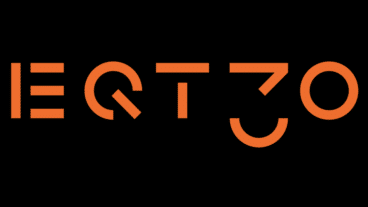Distributors like SNX are vital in the IT ecosystem. Vendors sell on average 40% of their hardware and software directly to large customers but rely on distributors to reach the long tail of small- and medium-sized businesses. SNX buys products at a discount from vendors and sells them to resellers, who then sell to the end-customer. Beyond distribution, SNX adds value by offering market reach, logistics, financial assistance, market insights, product bundling & integration and independent advice. As the market leader in a fragmented industry, SNX benefits from economies of scale, broader vendor/reseller relationships, and better pricing, positioning it for continued growth in a consolidating market. When looking at distributors we like to see both a fragmented supplier and customer base. SNX checks both boxes as they source products from more than 1,500 vendors and sell them to more than 150,000 resellers. Only one vendor and one customer account for more than 10% of revenue. Both vendor and customer concentration decreased over time.
The shift from traditional hardware to cloud and services benefits SNX by creating a more stable business with subscription-based revenue and less reliance on transactional sales. This shift adds complexity to the channel and complexity is the friend of a distributor as it’s their job to simplify. They do so by offering high-margin services like consulting, integration and support to their resellers. Additionally, SNX stands to gain from increasing AI adoption. AI requires a lot of computing power, so outside of AI-powered software solutions, companies will need to upgrade their servers, switches and storage as well. Historically, new technologies, like AI, have come at higher price points and at higher margins for the distributors.
Valuation
The IT spending market has historically grown at around 5% and SNX grows slightly above that, leading to 6-7% top-line growth. Earnings are expected to grow even quicker due to higher margins from the faster-growing software and services. SNX generates substantial cash flows, which it uses for value-enhancing acquisitions or returns to shareholders, adding roughly 10% to the annual return. This leads to a 15-20% expected annual total return, consistent with the company’s performance over the past two decades. Despite having a higher growth profile than the majority of the listed companies, SNX trades at steep discount to the average company at only 9x forward earnings. Additionally, the company has shown economic resilience, achieving earnings per share growth even during the global financial crisis.
Risks
The biggest risk for SNX is the possibility of being disintermediated by its vendors. Many feared that the shift to the cloud would render distributors obsolete. However, this concern has proven unfounded, as increased complexity has enhanced the value proposition of distributors. This is also evident by the fact that the indirect channel gained 300bps share from the direct channel since 2007. Additionally, many of SNX’s relationships with vendors and resellers span over four decades, fostering deep trust and reliance, which makes these partnerships highly durable and sticky.
Management
Patrick Zammit was recently promoted to CEO after more than seven years with the company. Most other executives have been with the company for over a decade. This longevity is something we like to see this, as it indicates a strong company culture and stability, which is especially valuable given SNX’s strong track record. Directors and executives collectively own 2% of the company and most of the executive compensation is tied to share price performance and key financial metrics.
ESG
SNX has set externally validated science-based targets that include reducing Scope 1 & 2 emission by 42% by 2030, reaching net-zero GHG emissions by 2045 and to procure 90% of their products from suppliers that have science-based targets by 2028. Moreover, they have various diversity targets in place.







